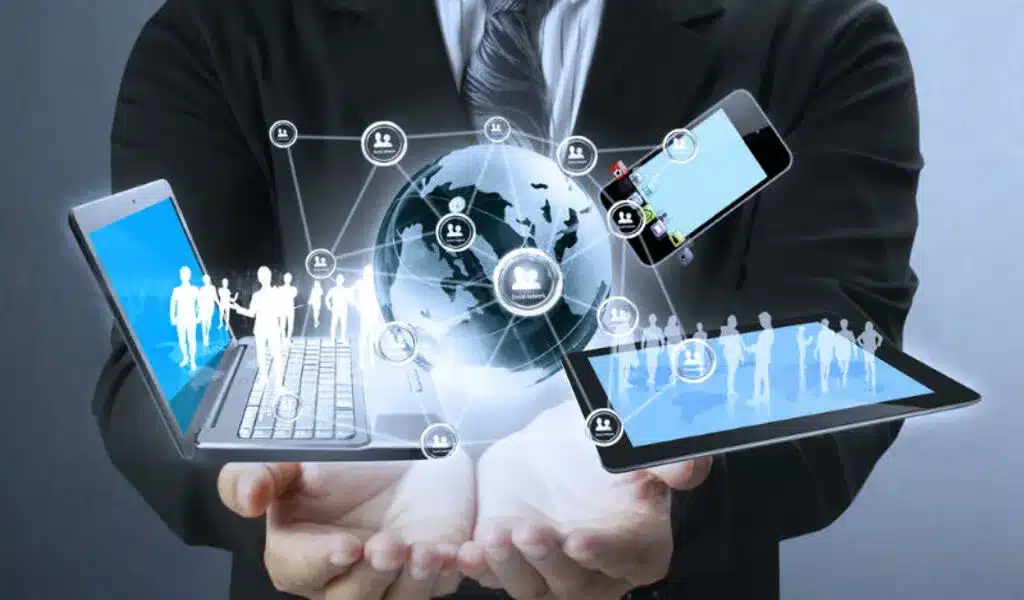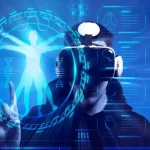Technology has always been a driving factor for change in our world, but the rate at which it is evolving today is unparalleled. By 2025, we could see alterations right out of science fiction novels. This post will examine 12 ground-breaking ways technology could change our lives and the globe by 2025.
Artificial intelligence and machine learning are revolutionizing healthcare.
Artificial intelligence (AI) and machine learning (ML) are expected to transform the healthcare business. From diagnostics to personalized treatment plans, these technologies promise to improve the efficiency and accuracy of medical care.
AI in diagnostics.
AI systems are increasingly adept at diagnosing diseases using medical imagery and data. For example, AI can analyze X-rays, MRIs, and CT scans faster and more precisely than human radiologists, detecting cancer early when it is most curable.
Personalized Medicine
Personalized medicine tailors therapies to each patient’s genetic makeup. AI and machine learning can analyze massive volumes of genetic data to offer personalized treatment strategies, potentially boosting outcomes while decreasing adverse effects.
Transforming Industries
AI and machine learning are revolutionizing healthcare and transforming other industries by increasing efficiency and productivity.
Automation in Manufacturing
AI-powered automation is improving manufacturing lines, lowering errors, and increasing output. AI-powered robots can do complex jobs and adapt to new processes without human intervention, resulting in more efficient manufacturing.
AI in retail.
Retailers use artificial intelligence (AI) to forecast consumer behavior, manage inventory, and personalize shopping experiences. AI-powered chatbots and virtual assistants also help customer service by responding instantly to requests and difficulties.
Quantum Computing
Quantum computing represents a tremendous leap forward in computing power and capabilities, with the potential to solve problems that traditional computers cannot now answer.
Advances in Data Processing
Quantum computers can process massive volumes of data at unprecedented rates. This skill can potentially revolutionize sectors like materials science, encryption, and complex system simulations, resulting in discoveries ranging from medicine discovery to climate modeling.
Impact on Cryptography
Quantum computing poses a severe danger to conventional cryptography approaches essential for digital security. However, it also has the potential to build new, more secure cryptographic algorithms for protecting information in the quantum age.
Biotechnology & Genomics
Advances in biotechnology and genomics are paving the way for new frontiers in medicine and agriculture, with the promise of improved health and food security.
Gene Editing Techniques
Gene editing technologies such as CRISPR allow for precise DNA tweaks, potentially treating hereditary illnesses and enhancing crop resiliency.
CRISPR technology
CRISPR technology enables the targeted modification of genes, which can rectify genetic errors, treat diseases, and improve favorable features in plants and animals.
Advancements in Personalised Medicine
Biotechnology also advances personalized medicine by allowing treatments matched to individual genetic profiles, resulting in more effective and less invasive medicines.
Renewable Energy Technologies
Renewable energy technologies are fast evolving, providing long-term solutions to the world’s energy issues.
Solar Power Innovations
Solar energy technologies are becoming increasingly efficient and inexpensive. Because of advances in photovoltaic cells and energy storage technologies, solar energy is becoming a realistic option for powering homes and businesses.
Wind energy advancements
Wind energy is also making tremendous advances. Improved turbine designs and offshore wind farms are increasing wind power’s efficiency and capacity, helping to create a cleaner energy future.
Space Exploration and colonization
The last frontier is becoming more accessible as technology advances in space exploration and colonization.
Private Space Travel
Companies such as SpaceX and Blue Origin are progressing in commercial space flight, which might make space tourism a reality by 2025. This might create new economic opportunities and motivate the next generation of explorers.
Mars colonisation efforts
Mars colonization efforts are gaining momentum, with plans for manned trips and eventual communities. These endeavors may pave the way for humanity’s multi-planetary future by tackling overpopulation and resource depletion on Earth.
The Internet of Things (IoT)
The Internet of Things (IoT) connects gadgets and systems, making our lives more efficient and connected.
Smart Homes
The Internet of Things converts houses into smart environments where devices communicate and automate operations. IoT improves convenience, safety, and energy efficiency in our daily lives, from smart thermostats to security systems.
IoT for Urban Planning
In urban planning, IoT is used to develop smart cities that optimize resources, decrease waste, and improve citizens’ quality of life. IoT sensors can monitor traffic, air quality, and energy usage, allowing for more responsive and sustainable city administration.
Blockchain and Cryptocurrency
Blockchain technology and cryptocurrencies are transforming finance and other industries by providing decentralized, transparent systems.
Decentralized financing (DeFi)
Decentralized Finance, often known as DeFi, uses blockchain technology to establish open, permissionless, and transparent financial networks. By 2025, DeFi might dramatically disrupt traditional banking by providing more accessible and inclusive financial services.
Blockchain and Supply Chain Management
Blockchain improves supply chain management by creating a transparent and immutable record of transactions. This enhances traceability, reduces fraud, and ensures product authenticity.
5G technology
5G technology is expected to revolutionize networking by providing faster speeds, lower latency, and more reliable connections.
Enhanced Connectivity
5G will improve connection for various uses, including streaming high-definition video and supporting sophisticated IoT networks. This enhanced bandwidth will accelerate innovation in various industries, including healthcare, education, and entertainment.
Impact of Remote Work
The COVID-19 pandemic has hastened the shift to remote work, and 5G will amplify this trend by providing the infrastructure for seamless online collaboration, eliminating the requirement for physical office space.
Virtual and augmented reality.
Virtual Reality (VR) and Augmented Reality (AR) are reshaping how we engage with the digital environment, resulting in immersive experiences across multiple industries.
VR in Education.
VR is revolutionizing education by providing immersive learning experiences. Students can research historical events, do virtual lab experiments, and even go on virtual field trips, making learning more engaging and productive.
Augmented Reality in Retail
AR improves the shopping experience in retail by allowing customers to see things in their environment before purchasing. This technique can reduce returns while increasing consumer happiness.
Autonomous vehicles
Autonomous vehicles are poised to revolutionize transportation, making it safer, more efficient, and more accessible.
Self-Driving Cars
Self-driving cars are becoming increasingly advanced, with many companies testing and fine-tuning their autonomous driving systems. By 2025, they could be widely adopted, reducing accidents and enhancing traffic flow.
Autonomous Public Transportation
Autonomous technology is also being used in public transportation systems, which could lead to more efficient and dependable transportation options. Autonomous buses and trains could increase urban transportation while reducing congestion.
Advanced Robotics
Advanced robotics is becoming increasingly significant in various industries, including manufacturing and healthcare, as it improves efficiency and capacities.
Robots in healthcare.
Robots are transforming healthcare by assisting in surgeries, caring for patients, and doing activities that require precision and dependability. Surgical robots, for example, can conduct complex procedures more accurately and with less invasiveness, resulting in faster patient recoveries.
Robots for Disaster Response
In disaster response, robots can penetrate dangerous environments, survey damage, and aid in search and rescue operations. These robots are outfitted with sensors and artificial intelligence to navigate through debris, find survivors, and offer important data to human responders, increasing the likelihood of life-saving outcomes.
Conclusion
The rapid growth of technology is expected to result in profound changes by 2025. From healthcare and industry to space exploration and everyday life, the inventions we see today will affect the future in ways we can’t even comprehend. Embracing these technologies will be critical to addressing some of the world’s most serious issues and building a more sustainable, efficient, and connected environment.








